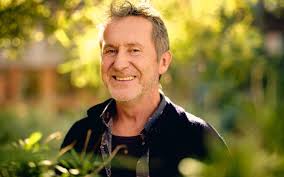Discovering Bruce Parry: Explorer and Documentary Filmmaker

Introduction
Bruce Parry has become a household name in the realm of exploration and documentary filmmaking. His unique approach of immersing himself in remote cultures and communities has brought to light the rich tapestry of human experiences and traditions around the globe. In an era characterized by rapid globalization, Parry’s work underscores the importance of cultural preservation and understanding, making his contributions increasingly relevant today.
Background and Career
Born in 1970 in a small community in the UK, Bruce Parry embarked on his journey as an adventurer in his early twenties. Before stepping into the limelight of documentary filmmaking, he worked as a survival instructor, honing skills that would later prove invaluable in his travels. His debut series, Tribe, aired on BBC Two in the early 2000s, showcasing his voyages across various cultures, from the Amazon rainforest to the Arctic tundra.
Notable Works
Parry’s documentaries, particularly the acclaimed Tribe series, captivated audiences with their raw honesty and immersive storytelling. He lived with indigenous communities, participated in their daily activities, and shared their stories, earning their trust and respect. His subsequent series, Amazon and Bear Island, further established his reputation, delving deeper into environmental issues and the impacts of climate change on indigenous peoples.
Recent Developments
In recent years, Parry has continued to advocate for indigenous rights and environmental sustainability. Following his experiences, he has launched initiatives aimed at raising awareness around these crucial issues. In collaboration with various NGOs, he is working on projects that support sustainable development for indigenous communities, ensuring their voices are heard amidst the complexities of modern-day challenges.
Conclusion
Bruce Parry’s contributions as an explorer and documentary filmmaker serve as a reminder of the importance of cultural understanding and environmental stewardship. As he continues to explore and document diverse cultures, his work inspires a newfound appreciation for the planet’s distinct communities and the narratives they encompass. As global conversations about sustainability and cultural preservation gain momentum, Parry’s insights and experiences will undoubtedly play a significant role in shaping future dialogues. Readers who engage with his work are encouraged to reflect on their own impact on the world and explore ways to support indigenous rights and environmental conservation.







